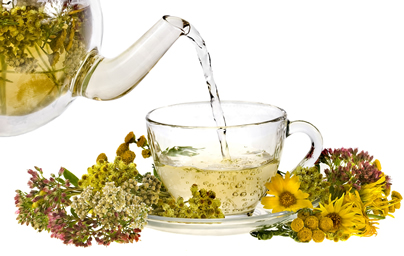About Herbal Medicine
 Herbal medicine — also called botanical medicine or phytomedicine — refers to using a plant’s seeds, berries, roots, leaves, bark, or flowers for medicinal purposes. Herbalism has a long tradition of use outside of conventional medicine. It is becoming more mainstream as improvements in analysis and quality control along with advances in clinical research show the value of herbal medicine in the treating and preventing disease.
Herbal medicine — also called botanical medicine or phytomedicine — refers to using a plant’s seeds, berries, roots, leaves, bark, or flowers for medicinal purposes. Herbalism has a long tradition of use outside of conventional medicine. It is becoming more mainstream as improvements in analysis and quality control along with advances in clinical research show the value of herbal medicine in the treating and preventing disease.
Recently, the World Health Organization estimated that 80% of people worldwide rely on herbal medicines for some part of their primary health care. In Germany, about 600 – 700 plant based medicines are available and are prescribed by some 70% of German physicians. In the past 20 years in the United States, public dissatisfaction with the cost of prescription medications, combined with an interest in returning to natural or organic remedies, has led to an increase in herbal medicine use.
In many cases, scientists aren’t sure what specific ingredient in a particular herb works to treat a condition or illness. Whole herbs contain many ingredients, and they may work together to produce a beneficial effect. Many factors determine how effective an herb will be. Many of the pharmaceuticals currently available to physicians have a long history of use as herbal remedies, including opium, aspirin, digitalis, and quinine. According to the World Health Organization, approximately 25% of modern drugs used in the United States have been derived from plants. At least 7,000 medical compounds in the modern pharmacopoeia are derived from plants. Among the 120 active compounds currently isolated from the higher plants and widely used in modern medicine today, 80% show a positive correlation between their modern therapeutic use and the traditional use of the plants from which they are derived.
Often, herbs may be used together because the combination is more effective and may have fewer side effects. Health care providers must take many factors into account when recommending herbs, including the species and variety of the plant, the plant’s habitat, how it was stored and processed, and whether or not there are contaminants (including heavy metals and pesticides). Buying standardized herbal supplements helps ensure you will get the right dose and the effects similar to human clinical trials.

Drs. Tieraona LowDog and Karen Johnson
In some countries in Europe — unlike the U.S. — herbs are classified as drugs and are regulated. The German Commission E, an expert medical panel, actively researches their safety and effectiveness.
While still not widely accepted, herbal medicine is being taught more in medical schools and pharmacy schools. More health care providers are learning about the positive and potentially negative effects of using herbal medicines to help treat health conditions. Some health care providers, including doctors and pharmacists, are trained in herbal medicine. They can help people create treatment plans that use herbs, conventional medications, and lifestyle changes to promote health.
